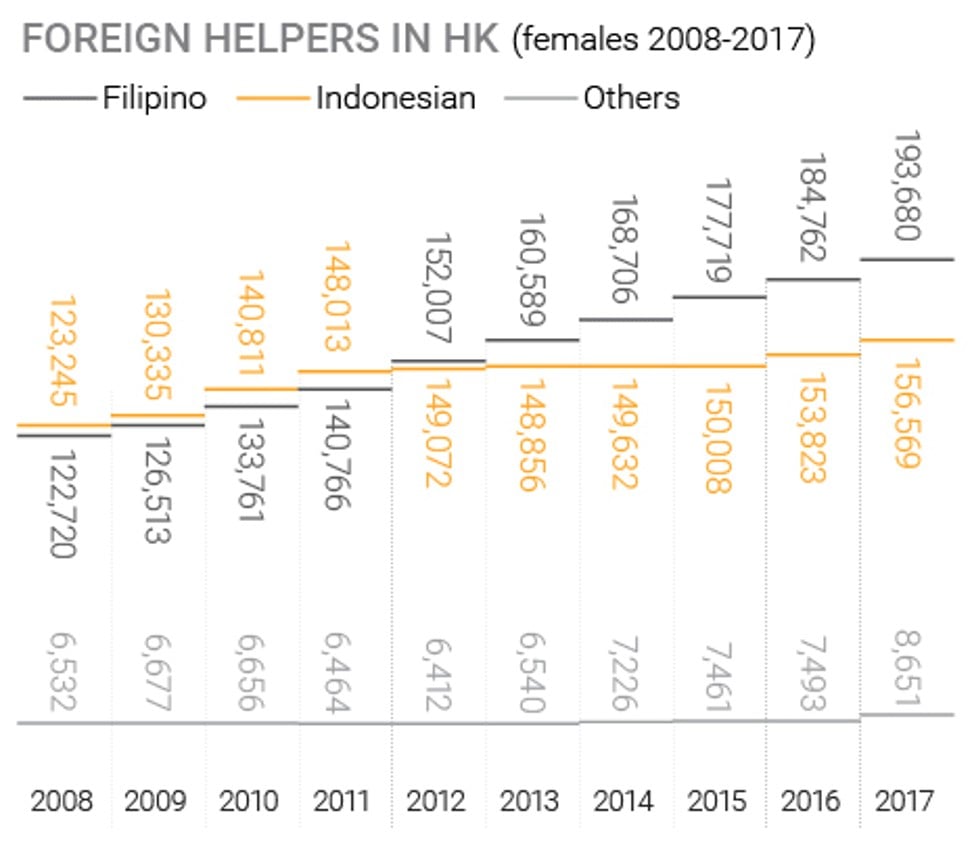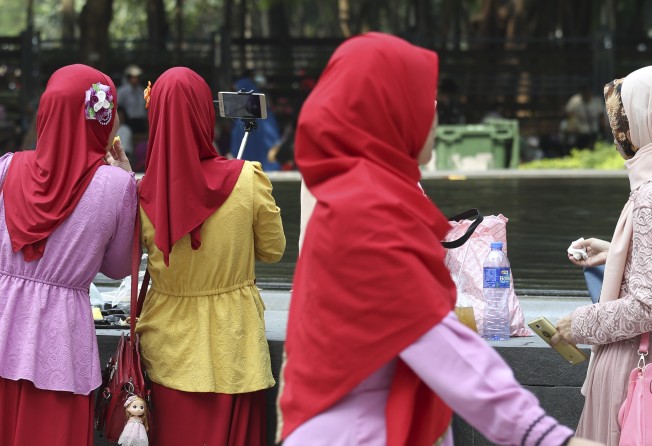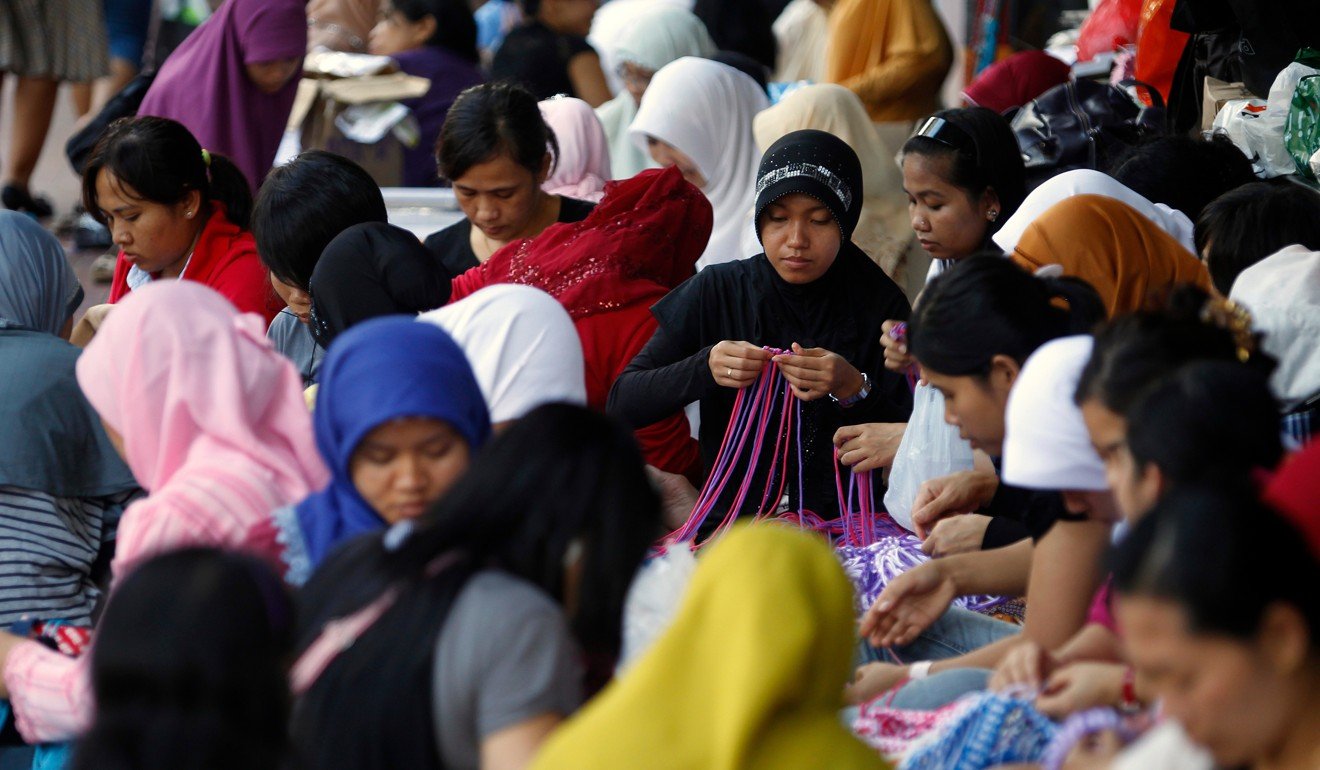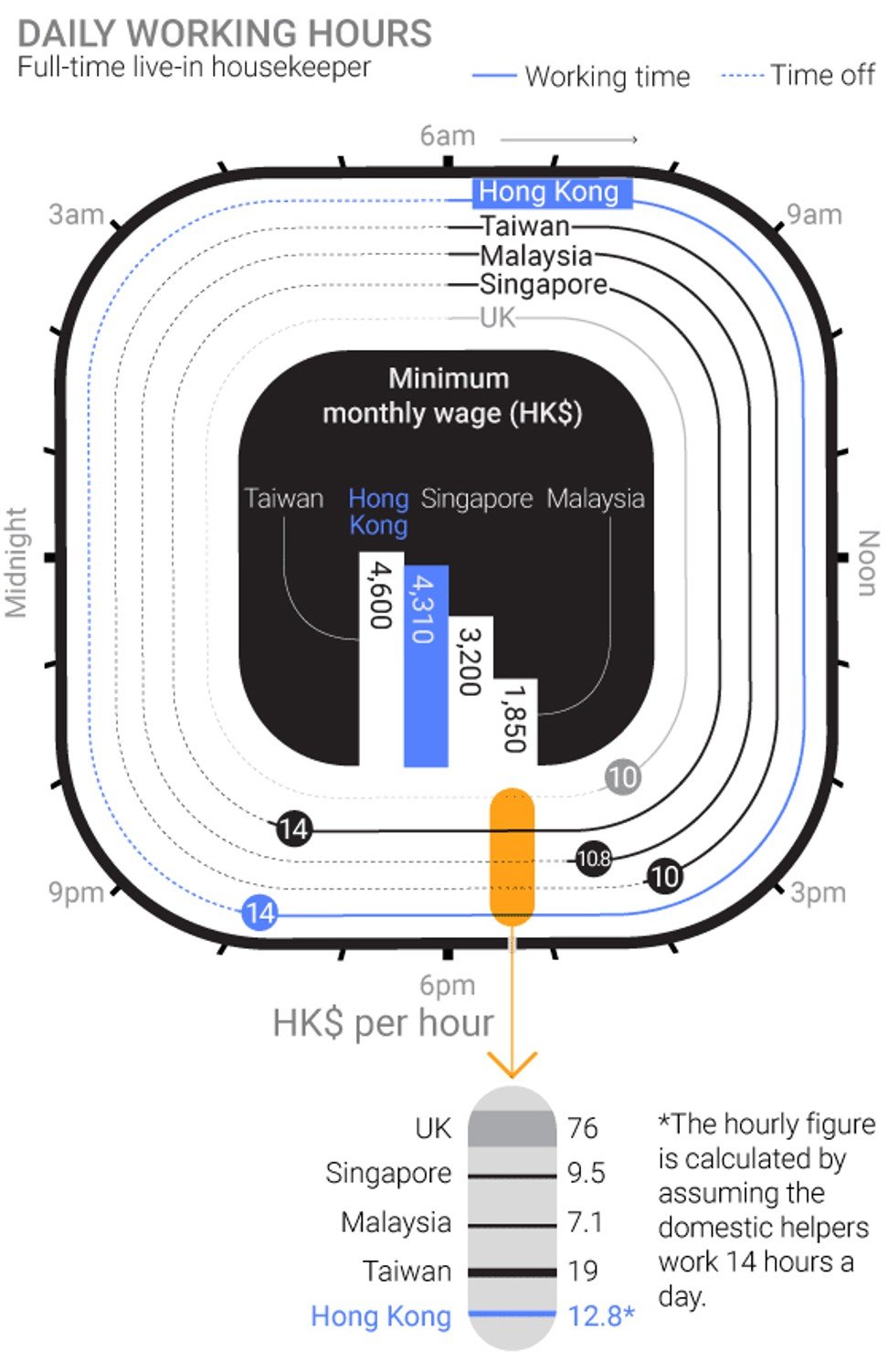
What happened to the Hong Kong spirit? Don’t ask our mistreated domestic helpers
Lunar New Year is all about family unity, but rather than treat helpers like valued members, many employers treat them like slaves, says Luisa Tam

Kung hei fat choi and welcome to the Year of the Dog. Lunar New Year is considered to be the most important festival in Chinese culture, as it is all about family unity as relatives from around the globe gather together to usher in the new year.
Some people who have not grown up celebrating Lunar New Year may think it is akin to Christmas in the West because of its ethos of family unity, but they couldn’t be more wrong.
The Christmas spirit is not simply about family time but also giving to those beyond our immediate circle and lending a helping hand to those most in need. But Lunar New Year is mostly about spending time exclusively with one’s family. In other words, it embraces more a spirit of “receiving” than “giving”.
I often hear stories about local Chinese families making their foreign domestic helpers work during the festive period without so much as a holiday bonus – let alone a fair rate – even though they are entitled to three days of statutory holidays.
An Indonesian helper in my neighbourhood told me her employer allowed her only one day off this Lunar New Year and compensated her HK$280 (US$36) for the two rest days that she worked. Her employer’s logic was that since the Lunar New Year was not her national holiday, she might as well have worked instead of doing nothing. For the same reason, she was also made to work over Christmas as she is a Muslim and not one for Yuletide celebrations.
She told me sometimes she doesn’t even receive a regular day off during the week because she is often “needed” as her employer and his spouse both have to work; the couple work at government hospitals and do weekend shifts sometimes.

The bottom line is that she only gets her day off whenever her boss sees fit, which basically means at a time that is better suited to her employer. And to be honest, it’s a bit mean to compensate her with just HK$140 per day instead of dividing up her monthly salary of HK$4,410 by the number of work days in the month. That means she should have been paid HK$210 per day in February because there are only 21 work days.
It’s commonplace for many Hong Kong employers to treat their helpers like slaves and the story of this maid is just a drop in the ocean. Recently, a High Court ruling to maintain the live-in rule for foreign domestic workers was approved, which further reinforced this appalling attitude.
The live-in rule has long been seen as an enabler of abuse because helpers are confined to (often small) quarters. Furthermore, helpers who are unlucky enough to live under the same roof as an abusive employer have no means of escape. Even for those who have decent employers, it seems unfair to not allow them to unwind in their own personal space and away from their place of work. After all, we don’t finish the working day and sleep in our offices, do we?
On the whole, it’s abhorrent that our society as a whole gives these employers carte blanche to treat those under their employ in whatever way they please without even a measure of reprimand or proper punishment.
As my colleague Yonden Lhatoo raised in his column this week, are we telling these helpers to leave the city if they find working and living with their employers unbearable?
Just imagine, if you find your company maltreating you and other staff and want changes to improve the conditions and are then told that if you don’t like it just leave, how would that go down?

I am sure if you worked for a proper corporation, you wouldn’t go down without a fight and if you raised the issue in public that would certainly draw quite a few headlines in the media and strong reactions all around.
Sadly, this form of social injustice is something many of us seem to have become used to, thinking it’s normal. But is it? Is it normal to force these 370,000 helpers to live with the families who hire them? Is it right to force them to live with families who don’t often treat them like a member of the family?
What’s disturbing is that the older generation of Hongkongers used to embrace the spirit of community affinity and camaraderie. They believed in working hard to get out of poverty and always found time to help others in need. They believed in working hard to create a better life for their families and most importantly they believed in honour.
What happened to all those virtues in this generation of Hongkongers? Are we not seeing the same spirit in our most valued members of society – foreign domestic helpers who are doing exactly the same, helping their families back home to get out of poverty by toiling for long hours, without a proper break and a proper living space?
Just because this is the norm in this city doesn’t mean that it must remain so.
Luisa Tam is a senior editor at the Post
